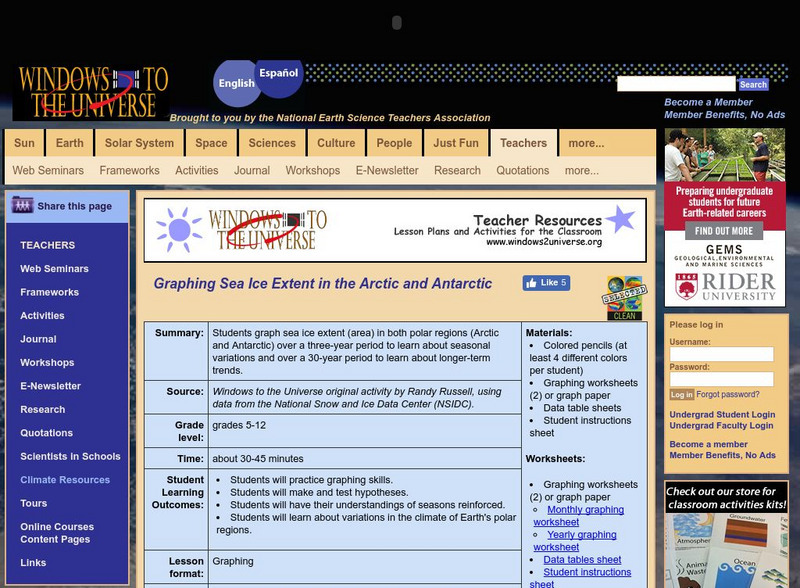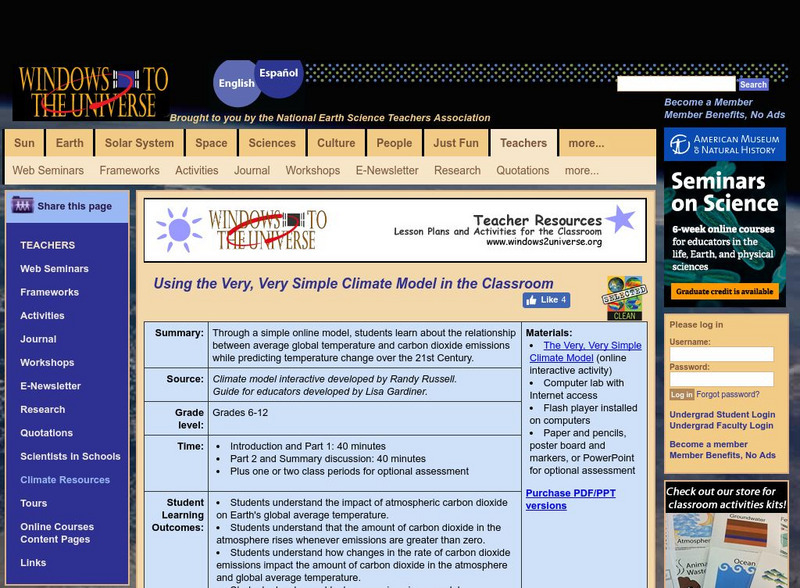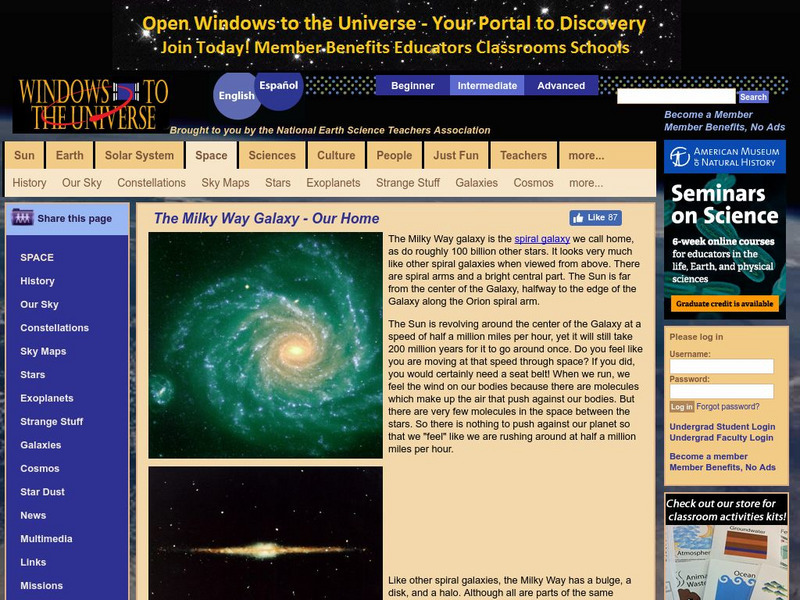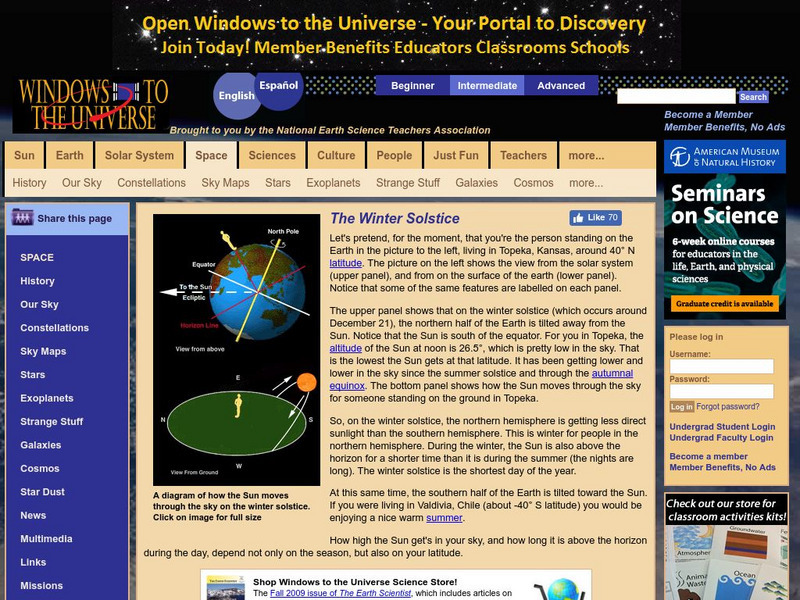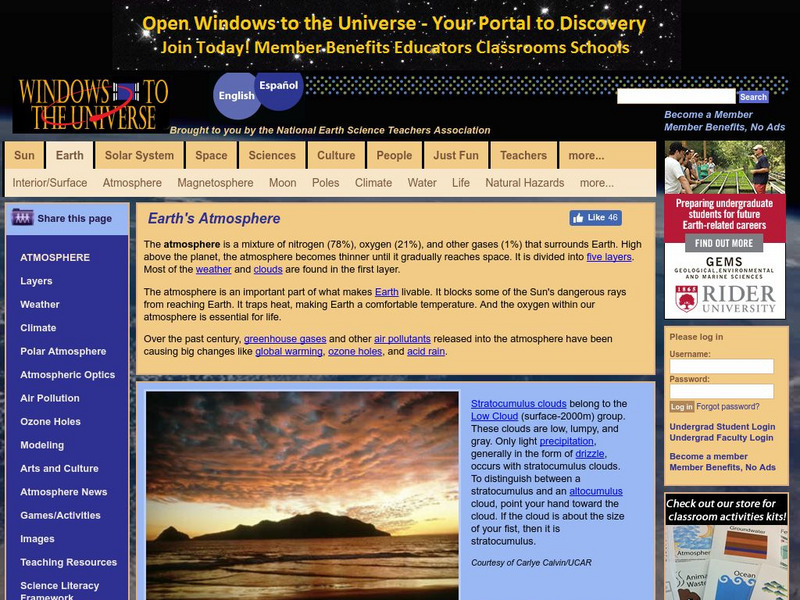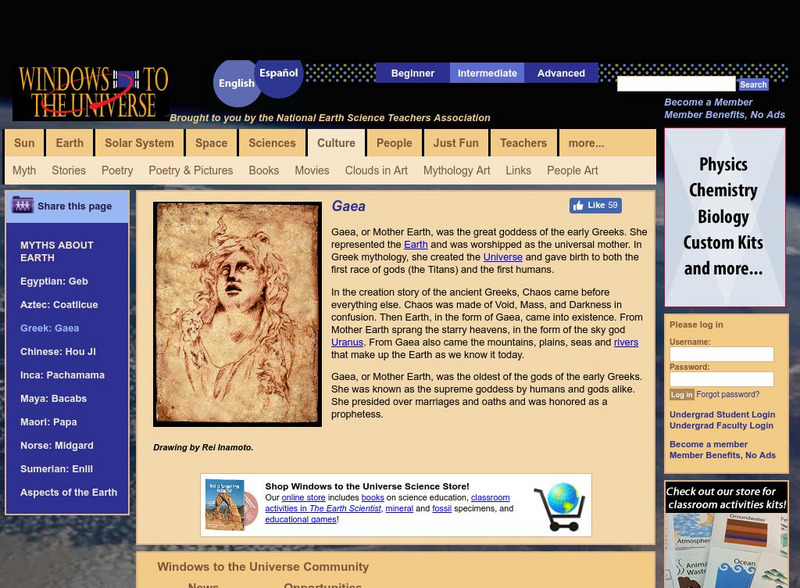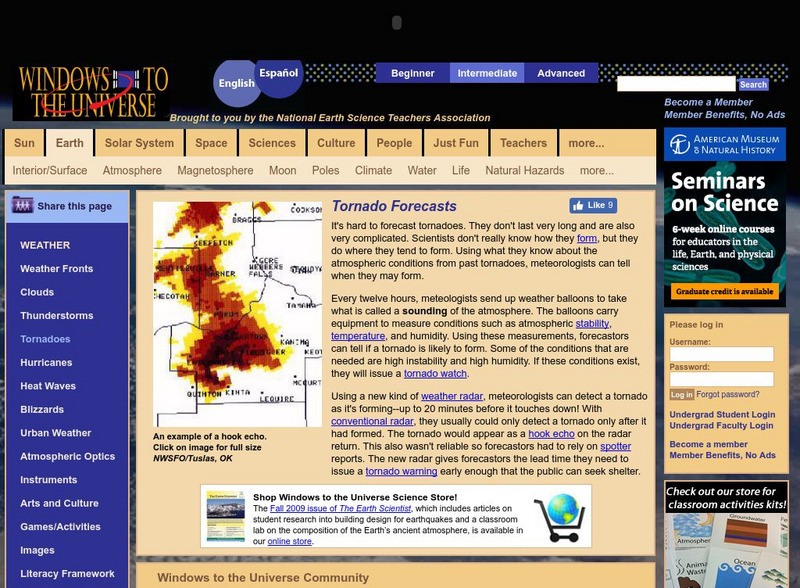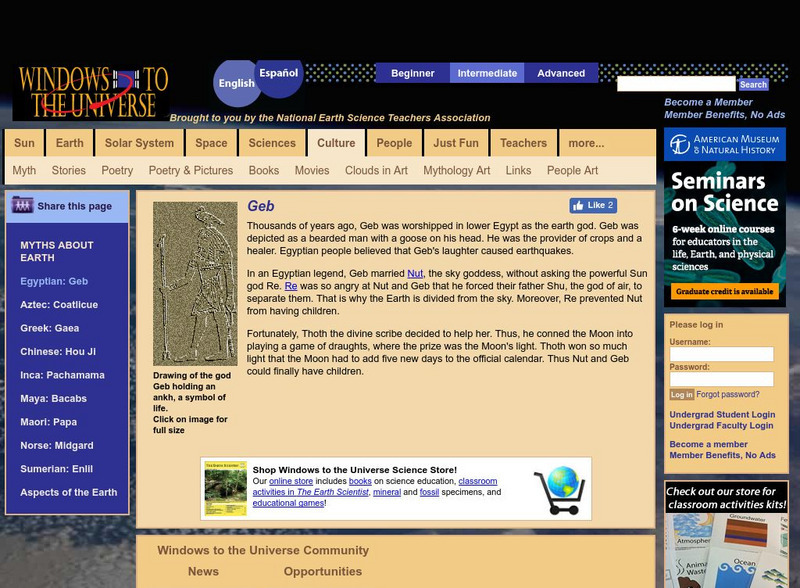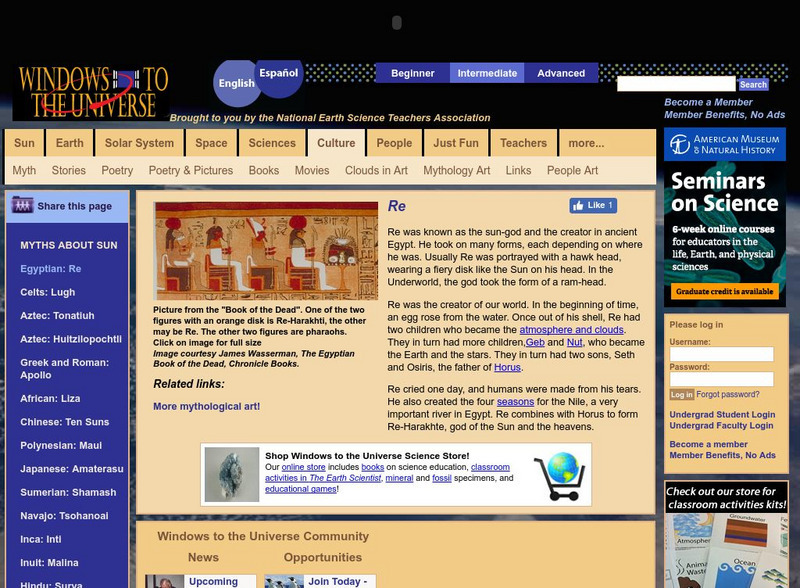National Earth Science Teachers Association
Windows to the Universe: Our Solar System
Our solar system is filled with a wide assortment of celestial bodies - the Sun itself, our eight planets, dwarf planets, and asteroids - and on Earth, life itself! The inner solar system is occasionally visited by comets that loop in...
National Earth Science Teachers Association
Windows to the Universe: Graphing the Extent of Sea Ice in Arctic and Antarctic
Students graph sea ice extent in both polar regions over a three-year period to learn about seasonal variations, and over a 30-year period to learn about longer-term trends.
National Earth Science Teachers Association
Windows to the Universe: Changing Planet: Permafrost Gas Leak
This is a multi-faceted activity that offers students a variety of opportunities to learn about permafrost through an important sink and source of greenhouse gas (methane), about which most students living in lower latitudes know little.
National Earth Science Teachers Association
Windows to the Universe: Using the Very Simple Climate Model in the Classroom
Through a simple online model, students learn about the relationship between average global temperature and carbon dioxide emissions while predicting temperature change over the next century.
National Earth Science Teachers Association
Windows to the Universe: Feeling the Heat
In this lesson students learn about the urban heat island effect by investigating which areas of their schoolyard have higher temperatures. Then they analyze data about how the number of heat waves in an urban area has increased over...
National Earth Science Teachers Association
Windows to the Universe: Thermal Expansion and Sea Level Rise
In this activity students investigate how thermal expansion of water might affect sea level.
National Earth Science Teachers Association
Windows to the Universe the Milky Way Galaxy
Learn what Milky Way galaxy is made of and what it looks like, as well as how it relates to other known galaxies. Read "Questions and answers about the Milky Way" for further information.
National Earth Science Teachers Association
Windows to the Universe: The Winter Solstice
Short explanation of the winter solstice, with a diagram. Available in three versions, Elementary, Intermediate, and Advanced. There is also a tab that accesses a Spanish-language version.
National Earth Science Teachers Association
Windows to the Universe: The Earth's Atmosphere
Windows to the Universe offers information on the Earth's atmosphere. The site contains links to a weather crossword puzzle and images.
National Earth Science Teachers Association
Windows to the Universe: Gaea/mother Earth
This website focuses on Gaea the great goddess of the early Greeks. She is also known as Mother Earth. Use this website to see a picture of Gaea.
National Earth Science Teachers Association
Windows to the Universe: Tsuki Yomi
Use this essay from the Windows to the Universe to learn more about Japanese mythology. "Tsuki-Yomi was the Moon god according the oldest Japanese religion, Shinto, which means 'the way of the gods.'"
National Earth Science Teachers Association
Windows to the Universe: Changing Planet: Infectious Diseases Classroom Activity
Learners will be introduced to the topic of infectious diseases in this lesson plan. While learning about how infectious diseases spread, they will learn how climate change is affecting the impact of these diseases. Includes printable...
National Earth Science Teachers Association
Windows to the Universe: Biogeochemical Cycles
Biogeochemical cycles happen when individual elements are recycled over and over in different parts of the Earth. Two examples are the Nitrogen Cycle and Carbon Cycle. Read an explanation of biogeochemical cycles and view a diagram of...
National Earth Science Teachers Association
Windows to the Universe: Air Pollution
What do smog, acid rain, carbon monoxide, fossil fuel exhausts, and tropospheric ozone have in common? They are all examples of air pollution. This article describes the causes and effects of air pollution.
National Earth Science Teachers Association
Windows to the Universe: Changing Planet: Melting Glaciers
Young scholars sort photographs of glaciers and measure glacial retreat to observe how alpine glaciers have retreated over the past century. Includes a printable worksheet, links to relevant materials, and extension activities.
National Earth Science Teachers Association
Windows to the Universe: Changing Planet: Sea Levels Rising
Students review topographic maps and use that knowledge to explore the impact sea level rise will have on coastal communities.
National Earth Science Teachers Association
Windows to the Universe: Junk in Space
Did you know that International Space Station used to release its trash into space? There is a lot of junk orbiting around Earth! In this game, you are asked to capture eleven examples of the junk that is floating in space but be careful...
National Earth Science Teachers Association
Windows to the Universe: Tornado Forecasts
Scientists study tornado history to help forecast future occurrances. This article explains methods meteorologists use to best predict when tornadoes might develop.
National Earth Science Teachers Association
Windows to the Universe: Geb
This article outlines the ancient Egyptian myth in which Geb, the Earth god, and Nut, the sky goddess, marry without the approval of the powerful Sun god, Re.
National Earth Science Teachers Association
Windows to the Universe: Structure of Mercury's Interior
Windows to the Universe briefly details the structure of the interior of the planet Mercury.
National Earth Science Teachers Association
Windows to the Universe: Re
Windows to the Universe provides a brief overview of Re, the sun-god and creator of ancient Egypt.
National Earth Science Teachers Association
Windows to the Universe: Hail
Read a paragraph about the formation of hail.
National Earth Science Teachers Association
Windows to the Universe: Structure of Earth's Interior
Windows to the Universe provides a brief overview of the structure of the interior of Earth.
National Earth Science Teachers Association
Windows to the Universe: Magnetic Field Reversals
Provides a short article, with embedded links, about magnetic reversals and how they might occur.



